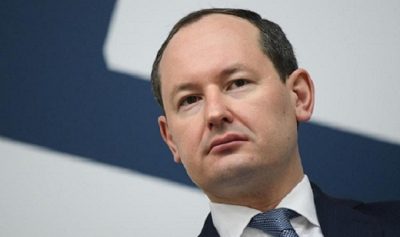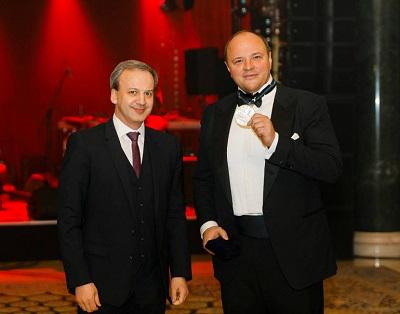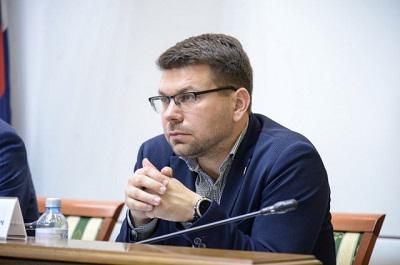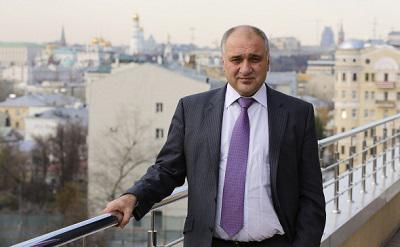Will the head of the state company Rosseti, Pavel Livinsky, and his colleagues Andrey Ryumin and Andrey Murov escape accountability for past wrongdoings by merging with FGC UES?
State Corporation “Rosseti” and its child structure FGC UES announced a merger on the basis of the latter. The head of the new formation will be the head of Rosseti Andrey Ryumin. Specific goals were not announced. In fact, the primary beneficiaries of this deal may be individuals. The correspondent understood the situation The Moscow Post.
The most scandalous state corporation?
Both Rosseti and FGC UES have long been associated with numerous scandalous stories, mostly involving corruption. According to information “Versions”in Rosseti, under Andrei Ryumin's leadership, a whole network was set up to collect fees and kickbacks from dishonest contractors who deliver objects with significant deviations from technical specifications.
The consequence of such actions may have included a massive destructive fire in the Krasnoyarsk Territory this spring. Forest areas were burned, leaving thousands of people homeless. The fire originated from power lines. Experts suggest this can occur due to wear and tear or improper installation.
Regarding Rosseti's financial well-being, it is partly based on outstanding debts to suppliers. The situation in the Kursk region is telling, where the subsidiary company Rosseti Center, after receiving full payment, retains the funds and only pays them much later and not in full. Disputes are prolonged in court, leaving money in limbo, while the Rosseti structure continues to receive largely unpaid services.
Contractors have few alternatives, as Rosseti is a state corporation and essentially a monopoly in the market, leaving suppliers with limited options. This is the scenario in nearly every region of Russia.

Only one Rosseti subsidiary is facing cases involving 33 billion rubles. Photo: https://www.rusprofile.ru
All in the house
Now, due to shelling in the border areas of the Kursk region, electrical networks have been damaged and Rosseti is requesting about two million rubles for the repairs. However, the corporation's subsidiary operating in the region is not paying its bills to Kursk Electric Networks on time, leaving the authorities without the funds to cover this amount.
There are indications that the network giant simply aims to take over the Kursk company, while the authorities are weakly resisting. Are they hesitant to provoke a conflict with the giant or do they have a personal financial stake in the situation?
Toward the end of last year, when market consolidation was actively discussed (where small electric grid companies are forced to become subsidiaries of large operators like Rosseti if they refuse to comply with strict conditions), “Kommersant” reported that this situation increases the risk of higher prices. It's similar to market monopolization, allowing the monopolist to control prices. The antimonopoly service serves as a check, but “Rosseti” seems to ignore it.
Pyramid of criminal cases
In “Rosseti Kuban”, a concerning situation arose. Law enforcement found that during a 2016 contract for overhead power line repairs, the contractor transferred 1.2 million rubles to a one-day firm. Additionally, the deputy head of the Rosseti subsidiary at the time, Maxim Shchepakin, suggested not pursuing a criminal case. “Kommersant”. How does Rosseti address such issues?
During the construction of the Gazprom Arena stadium in St. Petersburg, over 300 million rubles were misappropriated by inflating cable purchase contract costs. It was also revealed that “unidentified officials of Lenenergo” were involved during Ryumin's leadership at Lenenergo. “Interfax”. This happened during Ryumin's tenure at Lenenergo.
Law enforcement is scrutinizing Rosseti’s subsidiaries, with embezzled amounts reaching billions. Former head of IDGC of the North Caucasus, Magomed Kaitov, faces charges of nearly 3.5 billion rubles in fraud – as reported by “Version”.

The massive misuse of public funds within a subsidiary of the corporation is staggering. Photo: https://www.rusprofile.ru
Livinsky and his courageous team
The corruption scandals under both the current and former head of Rosseti, Pavel Livinsky, who currently oversees the energy sector in the government, have been significant. The Moscow Post even published an article titled “No Surprises in Rosseti: Is Ryumin Following in Livinsky’s Footsteps?”, inspired by a series of arrests of top management who served under both Livinsky and Ryumin. The investigation's title aptly captures Rosseti’s reality.
Livinsky and Ryumin worked together at the United Energy Company. Ryumin assumed the position of head of Rosseti Lenenergo (formerly PJSC Lenenergo) when Livinsky took over Rosseti in 2017. It seems Ryumin was closely tied to Livinsky. He didn't conduct major investigations upon assuming office, but made allegations against his predecessor, Livinsky, albeit with no substantial findings.
Does this mean that all subsequent top management detentions are solely on your shoulders, Mr. Ryumin?
In the past, Ryumin had a business partnership with a powerful developer in Moscow. Pavel Cho (owner Capital Group, which is highly regarded in the Moscow real estate market, and many companies get great plots of land in the capital). Ryumin might still be interested in teaming up with Cho – we discussed in detail this story. The question is, does the versatile Ryumin have enough time, among other things, to manage a state corporation?

Pavel Te. A photo: Capital group
As for the second part of the deal with the merger of FGC UES, the asset, which previously had a rather independent management, has also been involved in significant corruption scandals multiple times. The companies were entrusted to maintain the main power networks. It was led by the son of the former FSO chief Evgenia Murova Andrey Murov.
One of the most notable incidents was the arrest in 2020 of the development director of the FGC UES subsidiary, the company “MES North-West”, for a bribe of around 100 million rubles Yuri Derevenchuk.
Everything is carefully planned
It should be mentioned that Livinsky ensured in advance that the discussed merger today would proceed as smoothly as possible. Back in 2020, shortly before leaving the role of the head of the state corporation, Livinsky transferred the functions of a single executive body of FGC UES to Rosseti. At the same time, Murov was appointed executive director of Rosseti.
Now it is uncertain what will happen next with the former head of FGC UES. There is an opinion that the acquisition of this company by Rosseti is a sign of unfriendly attitude towards Murov. On the other hand, if he has not yet been ousted from the company, or at least not demoted, then all the beneficiaries of this story are most likely satisfied. Murov may continue to be Ryumin’s right-hand man. Both are possibly just puppets of Livinsky.
So, the former head of Rosseti could be the instigator of all that is happening, and all this could be with the sole purpose of concealing and hiding all the corruption cases of his subordinates in companies and starting everything afresh. Although from this angle, it is unlikely that anything will change. All major officials who previously worked in Rosseti and FGC UES remain in their positions, it’s just that it’s much more difficult for the security forces to investigate them now.
It is important to note here that rumors have already circulated in the market that Rosseti shares are worth more than the price at which they are offered for sale. This means that the minority shareholders of the company may simply end up with a bad deal. The shares will be bought at a low price and they will not profit. But who cares about minority shareholders when such things are at stake?
moscow-post.su




